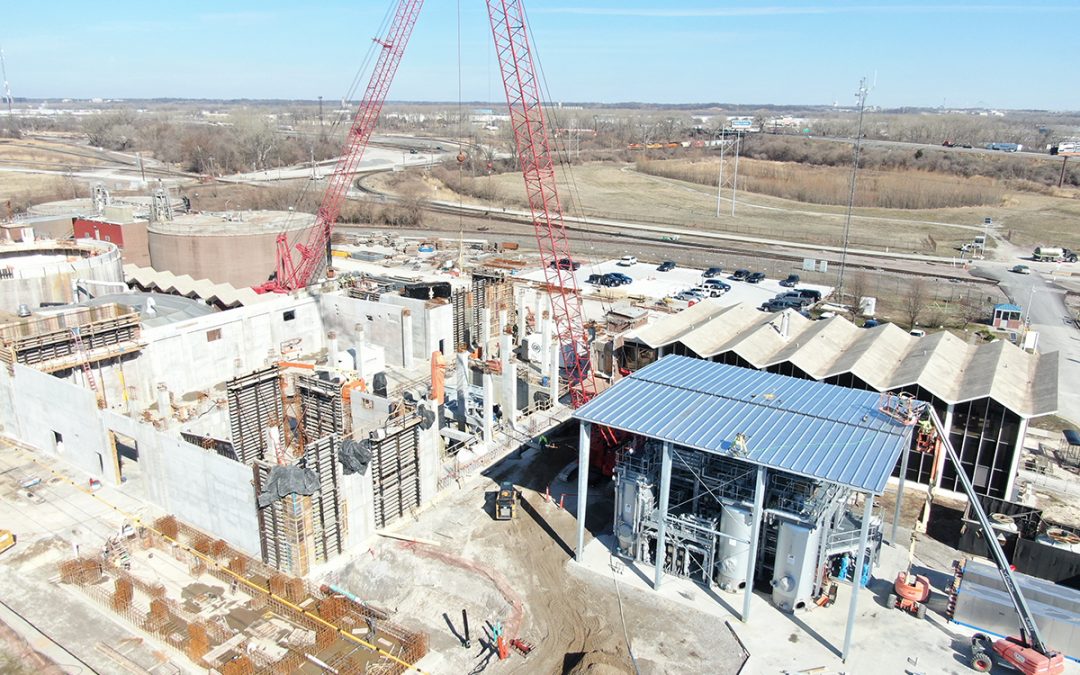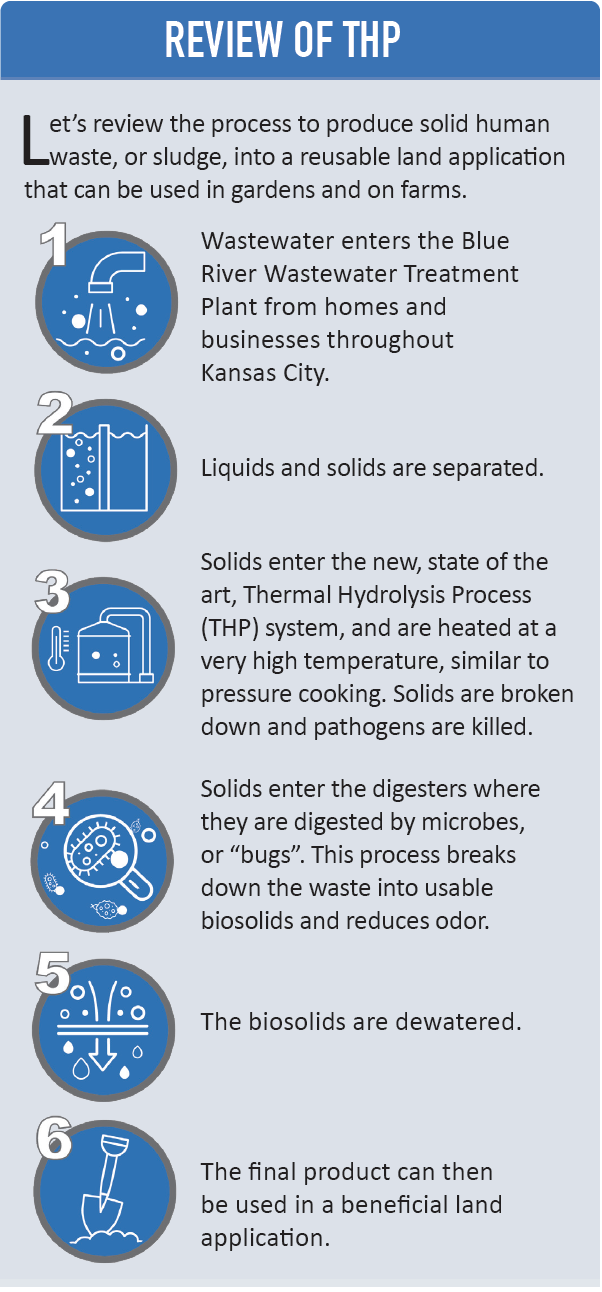What does it all mean?
- Anaerobic means “without oxygen”.
- Micro aeration is adding a small amount of oxygen, or air, to the anaerobic process.
- Anaerobic organisms do not require oxygen to live. In fact, they cannot live in the presence of a lot of air.
Did you know that in Step 4 another incredible act of nature takes place? Not only are useful biosolids produced at this point, but also useful biogas is produced that can be used for electricity, heat or transportation fuel. The biogas can also be sold to other entities for profit.
Biogas is produced by biological conversion of human and animal waste and organic matter such as food scraps. But at this point the biogas contains hydrogen sulfide, H2S, which is toxic, corrosive and smells like rotten eggs. To produce a safe, usable biogas, the H2S must be removed.
Capturing and reusing biogas from wastewater treatment plants is common and successful throughout the world. Sweden, for instance, has done so since the 1960’s. They originally implemented the process while trying to reduce sludge volumes, but then realized that it had the added benefit of producing usable biogas and in turn, reducing the country’s dependency on oil. Some cities in the United States also treat and use the biogas, including Des Moines, IA.
KC Water is taking steps to capture and reuse this valuable biogas. The transition to the new THP system provides additional biogas and the opportunity to explore innovative options.
Currently with Black and Veatch, Carollo Engineers/ Jacobs, and Goodwin Brothers Construction, KC Water is conducting a pilot program to remove H2S from biogas.
Anaerobic means “without oxygen”. The “bugs” that break down solids in digesters do not need oxygen to live. In fact, they cannot survive in the presence of too much air. However, adding just a very small dose of oxygen/air to the digesters during this step turns H2S into elemental sulfur and improves the quality of the biogas. This process is called micro aeration. KC Water will begin the pilot study in the Spring of 2023 and test the biogas daily for a few months to determine if the process can be successful. Treating the biogas through micro aeration will result in significant cost savings to KC Water when compared to alternative biogas treatment technologies.
Importance of Operators
Plant operators play an integral role in monitoring the pilot program. They completed special training to monitor biogas from both digesters, one that is undergoing the micro aeration process and one that serves as the control digester. Operators will monitor digesters and process engineers will analyze data to determine if the micro aeration process can be implemented. A successful pilot will help reduce costs as Kansas City moves toward producing renewable energy from human waste.
Some Other U.S. Cities That Produce Renewable Energy from Human Waste Include
- Grand Junction, CO
- Oregon City, OR
- Des Moines, IA


